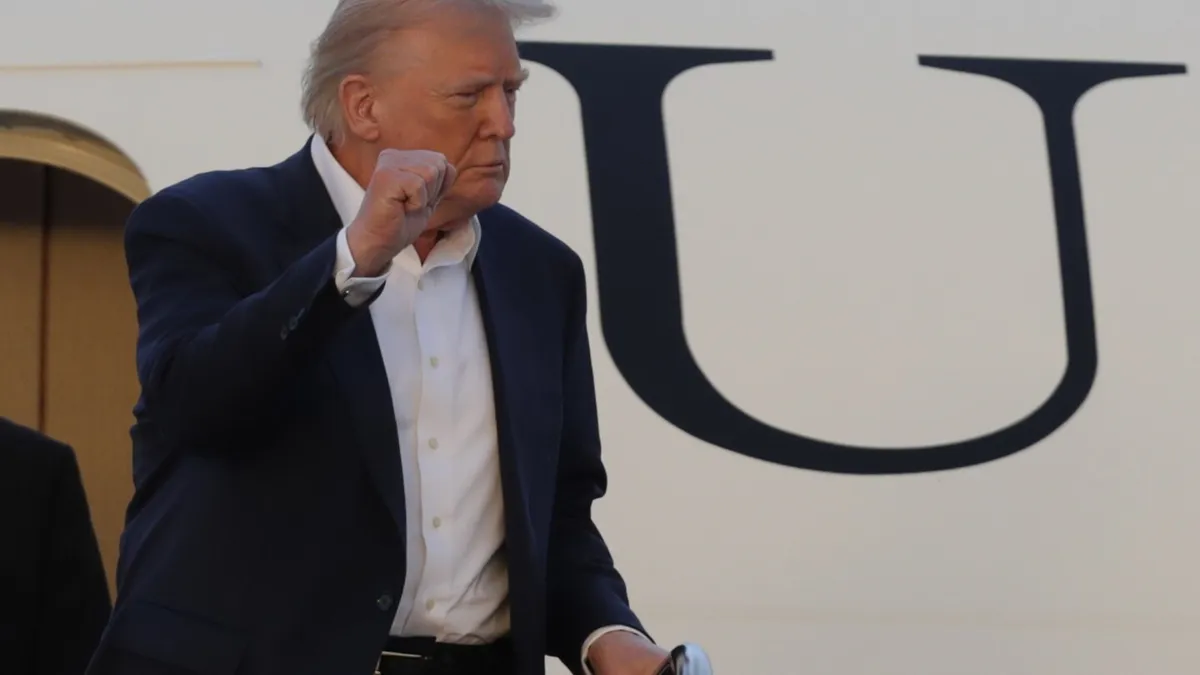
In a bold move as part of its mass deportation agenda, the Trump administration announced on Monday that it will provide financial assistance to immigrants in the United States illegally who choose to return to their home countries voluntarily. The Department of Homeland Security (DHS) revealed that eligible individuals could receive a stipend of $1,000 along with travel assistance when opting for self-deportation.
According to the DHS's news release, immigrants who express their intent to return home using the app called CBP Home will be prioritized for the financial assistance and will also face decreased chances of detention and removal by immigration enforcement agencies. Secretary Kristi Noem emphasized, “If you are here illegally, self-deportation is the best, safest, and most cost-effective way to leave the United States to avoid arrest.”
The administration has already initiated this program by funding a plane ticket for a migrant returning to Honduras from Chicago, with additional flights scheduled for the upcoming weeks. This initiative aligns with President Trump’s broader immigration enforcement strategy, which has been a significant component of his campaign platform.
Despite the apparent incentives, experts warn that the offer may not be as straightforward as it seems. Aaron Reichlen-Melnick, a senior fellow at the American Immigration Council, cautioned that leaving the U.S. without contesting their immigration status could have severe repercussions for migrants. He noted that for individuals already in removal proceedings, failing to appear in court could lead to automatic deportation orders, and departing the U.S. might jeopardize their applications for relief, including asylum.
Reichlen-Melnick further questioned the DHS's lack of coordination with immigration courts and raised concerns about the implications for those currently navigating the legal system. He stated, “People’s immigration status is not as simple as this makes it out to be,” highlighting the complexities surrounding immigration processes.
Amidst the push for self-deportation, questions arise regarding the funding and authorization for the payments being offered. Some analysts, including Reichlen-Melnick, suggest that these financial incentives might stem from the administration's inability to meet its deportation targets. “They’re not getting their numbers,” he remarked, indicating that the administration is resorting to encouraging voluntary returns due to the challenges in enforcing deportations.
The Trump administration has also repurposed the CBP One app, which was previously utilized by the Biden administration to facilitate migrant appointments for entry into the U.S. This tool has now been adapted to assist migrants in their return to their home countries. DHS reported that “thousands” of migrants have already engaged with the app to initiate self-deportation.
Mark Krikorian, head of the Center for Immigration Studies, which advocates for stricter immigration policies, expressed his support for the financial incentives. However, he raised practical concerns about implementation. “How do you make sure that they’ve actually gone home?” he questioned, suggesting that measures need to be in place to prevent individuals from challenging their removal upon re-entry.
In conclusion, while the Trump administration’s offer of financial incentives for voluntary departure may appear beneficial for some, it raises several complexities and concerns regarding the legal implications for migrants. As the situation unfolds, the effectiveness and execution of this program will be closely monitored by both advocates and critics alike.